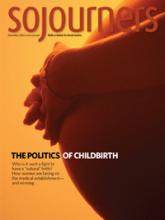It's hard to believe that we're having a national debate about giving more to those who have the most -- yet that’s the conversation in Washington, D.C. Should we give the very wealthy tax cuts that amount to nearly twice the typical family’s annual income? Or should we put those tax revenues to work to create more jobs for the poor, the middle class, and the unemployed, to promote the common good?
We've been down this road before. In the early 2000s, we gave massive tax cuts to the wealthy. It did not lead to strong growth in investment, employment, or wages, but it did lead to higher income inequality and more McMansions. We need to turn our economy around. Continuing tax boondoggles for those who don’t need the extra money is not the right policy.
The poor and the middle-class have borne the brunt of the Great Recession, which has wreaked havoc on families. Unemployment continues to be at near-record highs. One in 10 workers is out of work and searching for a job. For every five job-hunters, there is only one job available -- like a grim game of musical chairs. The typical U.S. household makes almost $2,200 less a year than it did when the recession began, the largest two-year decline since the Census started tracking incomes over four decades ago.
Things have been even worse for those at the very bottom. The share of the U.S. population living in poverty rose for the third straight year and is now higher than at any point in the last 15 years. In 2009, one out of every five children lived in poverty.
In contrast, the richest 5 percent of U.S. households (after an income setback from 2007 to 2008) saw their average income actually rise last year by $1,800.
Read the Full Article
